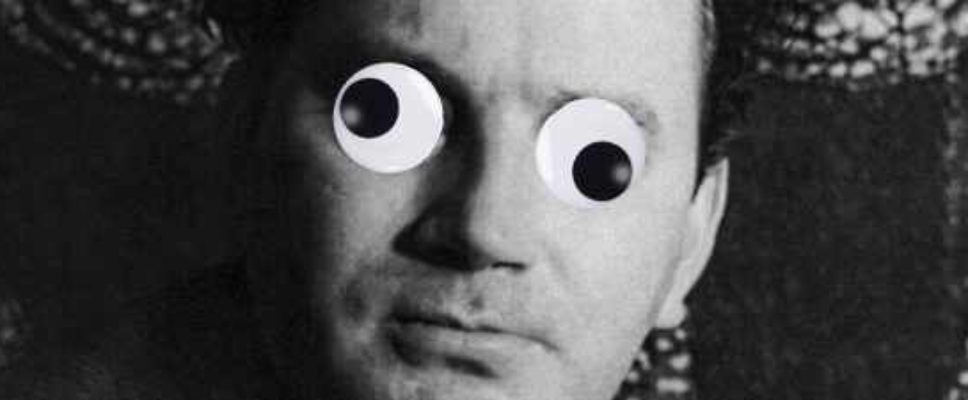Thomas Wolfe’s Writers Block Cure (1930)
This essay about Thomas Wolfe’s writers block cure was written for the sequel to “Writers Gone Wild,” “Writers Gone Wilder: The Sequeling” (or whatever it will be). Enjoy!
It’s difficult to believe that Thomas Wolfe had writer’s block. This is the man whose first draft of Look Homeward, Angel clocked in at 330,000 words, and at his death left a million words more. But he did, and thanks to a childhood habit he got his mojo back.

Wolfe was further upset over his five-year affair with Aline Bernstein, a married older woman (50 to his 30). She had provided him with emotional and financial support, and he mined her life for Angel. But Wolfe’s artistic self-absorption and lack of self-control turned passion into rancor and arguments. Just before he boarded his ship, he ended their relationship.
Alone in his stateroom, he settled down to his usual habit of writing through the night. But instead of watching the words flow easily from his pen, he found himself blocked. This state of affairs continued across the Atlantic. Even on his first night in France, in his Boulogne hotel room, he couldn’t write.
Wolfe decided to pack it in. He undressed slowly and walked naked to the window to look out over the port city. It was a warm night and as he contemplated the view, he felt his weariness fall away. He felt inspired.
As he puzzled over this sudden change in mood, he realized he had been unconsciously fondling himself, a boyhood habit.
In a letter to his editor, he explained in his trademark literary style that he had been exploring his “male configurations,” his “long and dangling shaft” and “the rough seedbag hanging free with the weight of the two solid nuts.” He didn’t get hard, at least physically, but he returned to his desk and wrote “in full spate again” until dawn. Thereafter, when he needed a burst of creativity he returned to his one-handed writing style.
He was not the first artist to discover this path to creativity. Balzac found that arousal had the same effect on him, but that an orgasm took it away. Or, as Woody Allen’s character put it after having sex in Annie Hall: “There goes another novel.”
